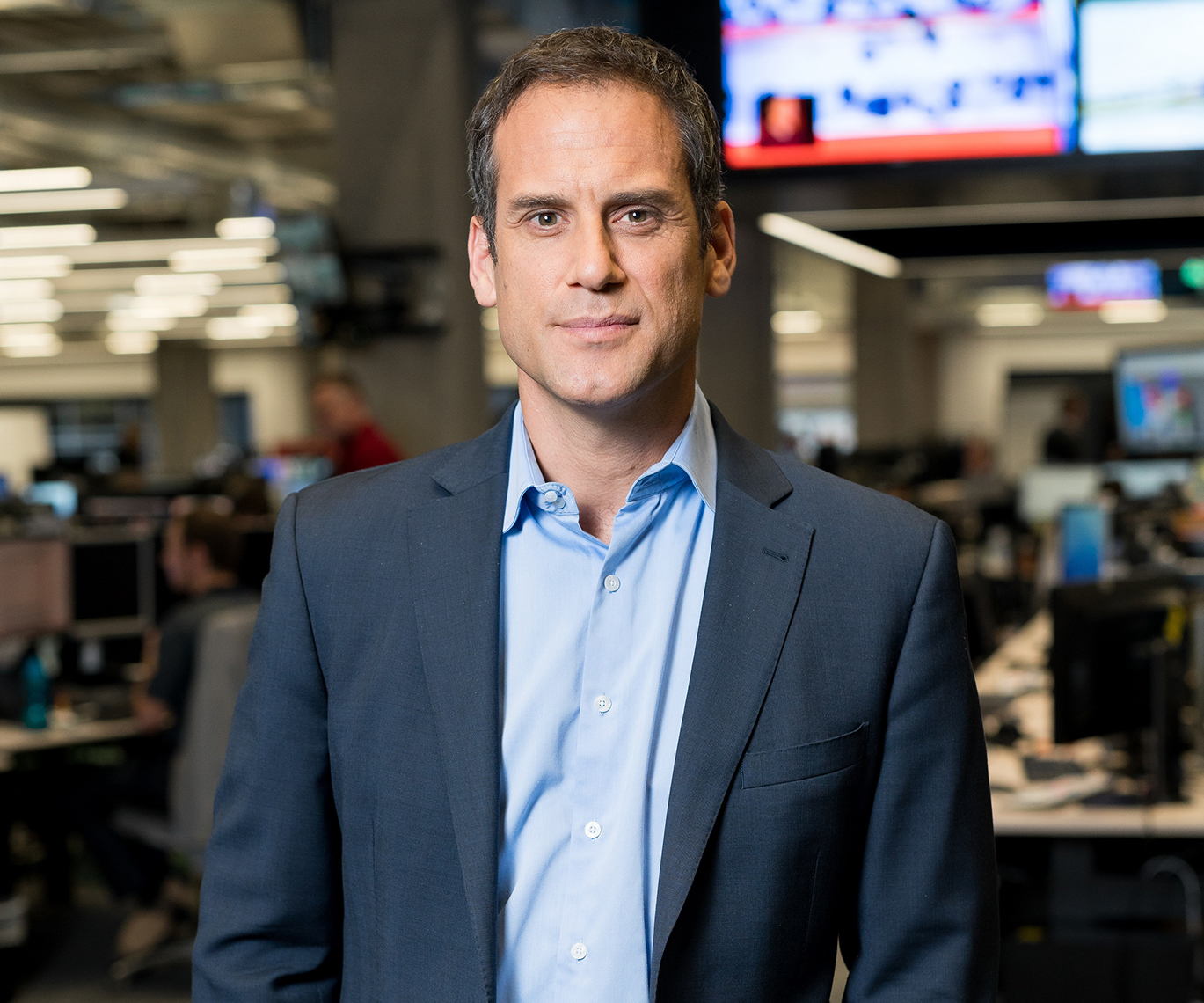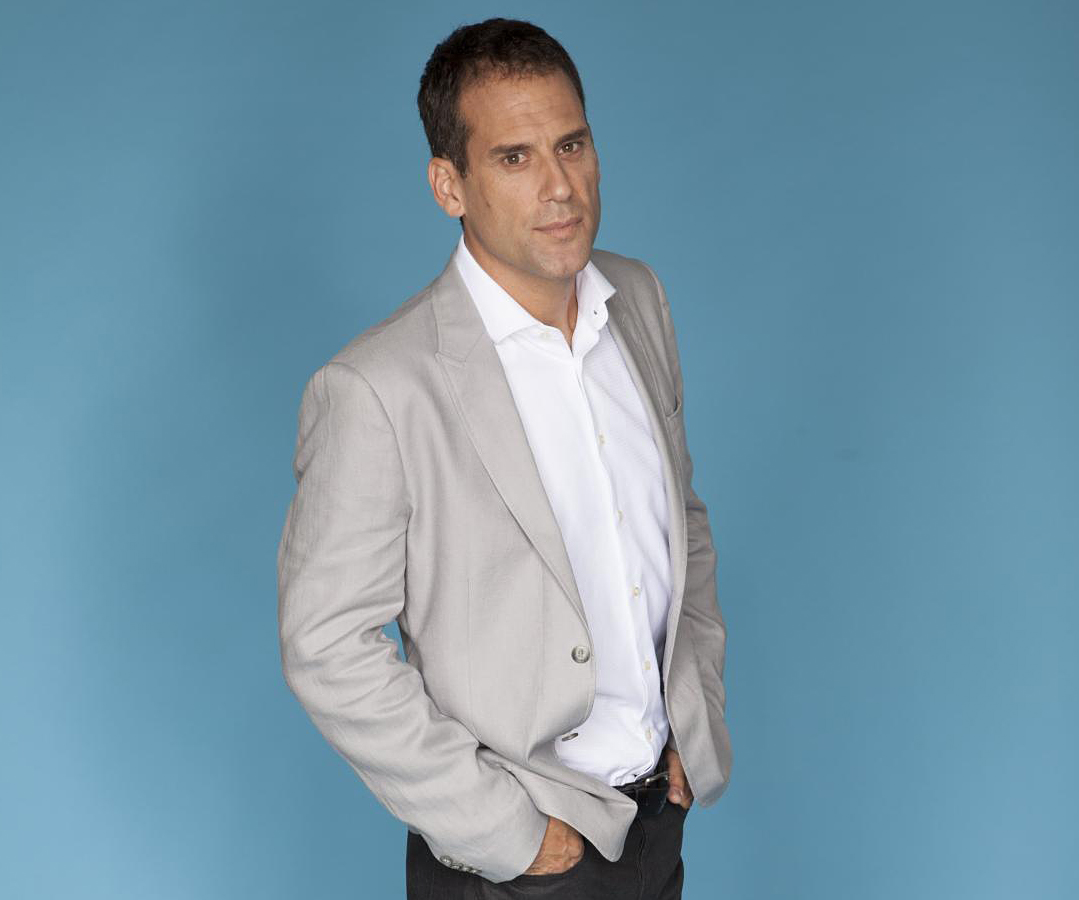The death of Greg Boyed this week has been felt heavily all over New Zealand. The talk surrounding the TVNZ news presenter’s passing all seemed to say “he seemed to be such a ‘normal’, happy guy!”
No one seemed to have seen it coming. Even those that knew him couldn’t see that Greg was struggling with depression.
“I look at Greg Boyed, I see just an on-to-it guy. You know, a guy that seemed to have everything together,” said Mark Richardson.
Despite his ‘normal’, happy, on-to-it appearance, Greg’s friends, family and colleagues are in mourning after hearing of the news of his death in Switzerland on Monday.

TVNZ presenter Greg Boyed.
On the AM show, Mark Richardson asked comedian and mental health campaigner, Mike King, the question so many Kiwis are asking “What are the signs? How do I know I need to reach out?”
In response, Mike stresses that “one of the biggest problems we have is this myth that there are signs.”
A person going through the hardest time isn’t likely to be weeping at their desk, off their food or even behaving any differently from their sociable, happy-seeming self. Mike is emphatic that the only way to tell if someone is having troubles with their mental health is if they tell you. And if they do, take it seriously.
He shares a story about a boy who went to his father, asking for advice about a friend who was suicidal and had asked for help. The father responded “What the hell’s the matter with you kids today? We didn’t have any of this crap when I was growing up. Stay away from that kid. If he wanted to take his own life, he would.” The boy turned out to be speaking about his own experiences with suicidal thoughts – as the father only found out reading his son’s note. “So we all need to be very aware of the things that we are saying to friends when they come to us to talk about these things.”
Our mental health crisis is obvious. We have the highest youth suicide rates in the OECD yet we are ranked in the top 10 happiest countries. We generally are a cheery bunch, yet our young people are more likely to take their own lives than any of the other 36 countries in the OECD.
“The problem we have in New Zealand’s society and all around the world is the problem isn’t the person in crisis,” says Mike. “It’s the rest of us who aren’t in crisis whose mental attitude is having the biggest effect.”
“We all need to be very aware of the things that we are saying to friends when they come to us to talk about these things.”
The plain truth is that our “she’ll be right”, “toughen up”, “harden up”, “man up”, “get over it” attitude is killing people. And the power to end that is in the hands of every New Zealander – we all have the option to shift our attitudes, listen and show our friends, family and colleagues the respect and kindness to simply listen to them and really make them feel heard.
Mike’s advice is fairly simple, yet it could and will literally save lives.
“More work needs to be done talking about normalising the inner critic, letting people know you’re allowed to have a suicidal thought – this sounds really bad, but you’re allowed to have a suicidal thought… I know 90 percent of New Zealanders have had a suicidal thought.”
And we need to accept that, normalise it and put an emphasis on it. It is essential that New Zealanders struggling with depression, anxiety and other mental disorders feel comfortable speaking up and asking for help. The onus is not on them to be strong enough to do that but on everyone else to be compassionate enough to accept that mental health issues are normal and far more common than seems to be commonly thought.
Those voicing the idea that Greg Boyed “seemed so normal” might want to check their stats, because 16% of Kiwi adults have at some point been diagnosed with a common mental disorder. That is one in 6 Kiwi adults – as common as asthma.
“The fact of the matter is 80 percent of people who have recurring thoughts of suicide never ask for help, ever.” Mike tells. “Why? They’re worried about what other people will think, they’re worried about what other people will say, they’re worried about what other people will do with that information. In other words… they’re worried about us.”
Much like contact lenses, mental health is invisible until the person tells you they’re dealing with it. Yet there is no stigma around contact lenses – if you’re having trouble breathing, you chat to a mate, or your mum or your co-worker and off you go to the doctor. We need it to be the same for depression, anxiety, bipolar and all other mental health ailments. We need to remove the worry from speaking up about mental health. We need to make sure New Zealanders know it is normal and that if they speak up they will not be brushed off or told to harden up.
“There’s one sign and one sign only people are suicidal – if they tell you. And the only they’re going to tell you is if you have kindness in your heart and make it okay for people to talk.”
And the first step to doing that is dropping the “seemed so normal” rhetoric. Greg Boyed was normal. His struggle was normal and the fact that everyone who knew him didn’t notice was normal. We need to know that if we are to change anything.
WHERE TO GET HELP
If you or someone you know is struggling with depression, call 0800 111 757 or text 4202 to talk to a trained Depression Helpline counsellor for free. For other mental health issues, call Lifeline on 0800 543 354, the Suicide Crisis Helpline on 0508 TAUTOKO or Youthline on 0800 376 633.

